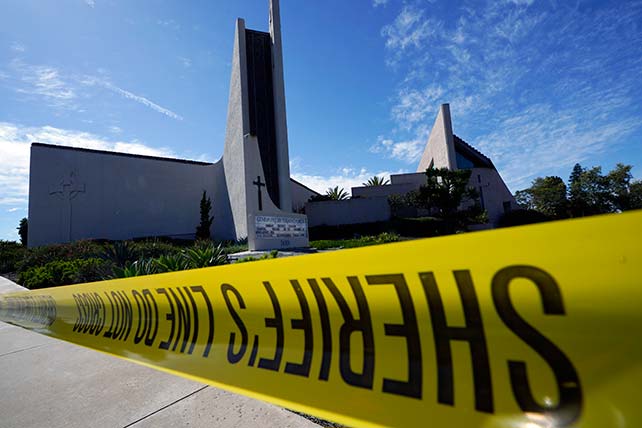There is no question that the Church has experienced hardship and scandal in recent months. From the Hillsong documentary to last month’s report released by the Southern Baptist Convention (SBC), Christians are having to openly and intentionally discuss issues that have been hidden for far too long. One concern that has greatly impacted the Church is pornography.
In today’s digital age, pornography has become increasingly accessible. It has also become more widely accepted and morally ambiguous over recent years. According to Barna Research, only one in ten teens and one in every 20 adults conclude that watching pornography is morally wrong.
Pornography is pervasive, and has a devastating impact on the mind, destroying marriages, careers and lives. In fact, the pornography epidemic is not only hurting the general public, but the Christian community as well. The same Barna study found that more than 50% of pastors and 68% of Chrisitan men view pornography on a regular basis. Likewise, 76% of Christian men between the ages of 18-24 are actively searching for pornography online.
The truth is no ministry leader sets out to be involved in a scandal. Sometimes, they blindly walk into it over time, not realizing that little habits and conversations led them there in the first place. These individuals who find themselves in leadership positions are tempted just like everyone else. However, due to their pastoral role in the church, Satan recognizes their position and uses their vulnerability to attack. Like other temptations, it has the power to pierce through the heart of even the most devout Christian leaders.
The report published by the SBC has shown us that there is an immense need for churches to be prepared and well equipped to handle problems such as sexual abuse, addiction, pornography or any other issues that happen within the walls of the church. As someone who experienced sexual abuse by a worship leader as a pre-teen, I am passionate about educating and training leaders through REAL TALK, a program that exists to protect every individual in each congregation from kindergarten to leadership.
Although REAL TALK is a catalytic tool, it’s not an end-all, be-all solution. This program opens up opportunities and reveals the need for next steps to bring about transformative healing for individuals in the Church. We provide those next steps so that the enemy no longer has an open door to control and oppress God’s people.
As we look out for the safety of our congregations, we should also be concerned with the wellbeing of our leaders. When ministry leaders fall prey to temptation and find themselves in the middle of a scandal, many fall away from their ministry and disappear because of shame and regret. My hope is that we can get ahead of the scandal before it begins, and that we can restore leaders, bringing them back into the light and on a path of recovery. We must be proactive and make it our personal mission to address the problems that hold too many leaders captive to sin.
My prayer for the Church is that we can create a place where people can be open and vulnerable, feel loved with unconditional acceptance and be empowered to step into freedom beyond what’s been holding them back. Whether it’s a program like REAL TALK or something else, we need to prepare our churches and give them confidence as they address the hard and sometimes dark issues in life.
It is time for an awakening in the Church. We need to normalize transparency, authenticity and protection throughout our congregations. We also need to provide a safe place for people to process, heal and recover from past experiences and leadership failures. There has never been a better time to inspire real change within our communities.



















